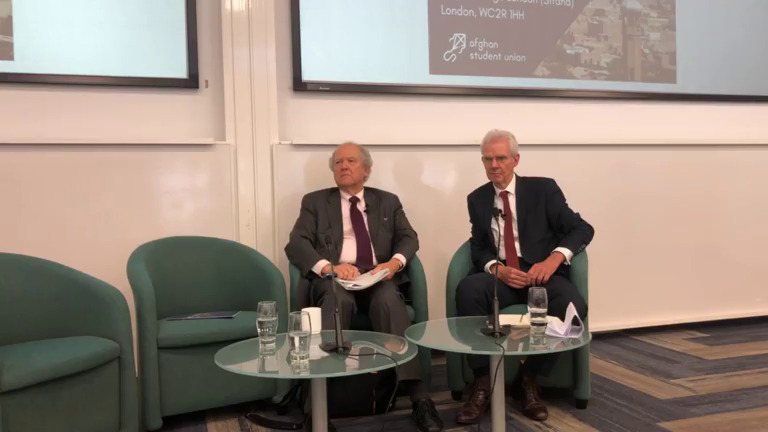Special Inspector General for Afghanistan Reconstruction John F Sopko said on Thursday that despite spending $147 billion to rebuild Afghanistan’s security forces, government, civil services, economy and civil society, the US “clearly failed”.
Addressing guests attending a conference, “Reimagining Afghanistan: Ways Forward”, at the Afghan Institute for Strategic Studies at King’s College in London, he said one of the key lessons learned was that the US government did not understand Afghanistan well enough.
“We too often treated it as one homogenous state, assuming what was good for Kabul was good for Kandahar. And now, there may be a tendency, particularly in the West, to view the Taliban as equally monolithic and homogeneous, when the truth may well be more complex.”
He pointed out that the subject of reimagining Afghanistan was “an extremely difficult topic.” He stated that while the world knows the humanitarian and economic situation in Afghanistan is “dire”, a number of factors have contributed to this – including the Taliban’s “reluctance to abide by any semblance of human rights norms, particularly when it comes to the treatment of – and opportunities for – Afghan women and girls.”
He said the conundrum the US government, the British government, and all the governments of the former coalition in Afghanistan face is immensely challenging. Addressing participants, he asked whether the Western donor community can justify sending assistance to Afghanistan “when it is run by one of the most repressive – if not the most repressive – regimes in the world?”
But at the same time, while people in Afghanistan face horrendous challenges in the face of the ongoing crises, he again asked “can governments stand by and do nothing in the hopes of altering Taliban behavior – or out of fears that assistance will benefit the Taliban?”
He went on to say that he thinks everyone recognizes that continued humanitarian assistance is at best a temporary solution and is likely not sustainable over the long term.
“Likewise, history shows, and the Taliban would be wise to realize, that no country can ever fully prosper and meet its potential if it ignores and suppresses fifty percent of its population,” he said.
He said while he does not have answers to these questions, it is up to the White House and Congress policymakers to grapple with these issues.
Sopko stated that as someone who has worked on issues relating to Afghanistan for more than 10 years, the “politics surrounding aid to Afghanistan are extremely complex.”
According to him, no one in Washington wants the people of Afghanistan to suffer because of the Taliban regime, but that “harder questions are starting to be asked about where US
assistance is going and whether any of it could be benefiting the Taliban.”
However, he pointed out that “after two decades of losing American lives fighting the Taliban insurgency and given the Taliban’s seemingly ever-increasing disregard for any international condemnations over their treatment of Afghan
women, girls, and minorities, patience may be wearing thin.”
According to Sopko, recently proposed Congressional legislation may have the effect of prohibiting indirect assistance to the Taliban in addition to the existing ban on direct assistance
to the Taliban. But how this could affect ongoing humanitarian assistance is unclear, “but it shows Congress’ continued concern with doing anything that might legitimize or otherwise assist Taliban rule.”
He said this legislation is at a preliminary stage and it is not likely to be known for several months if there would be any changes to US assistance to Afghanistan.





